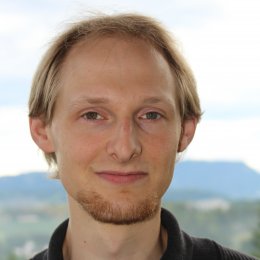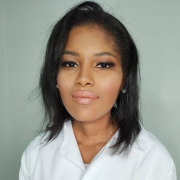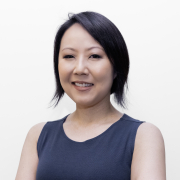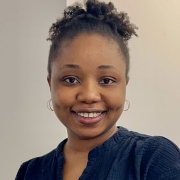How did you become interested in research relating to Hypertension?
During my medical training, I became fascinated by the complex pathophysiological processes involved in regulating the cardiovascular system. After joining the clinical research group of Drs Andreas Tomaschitz and Stefan Pilz, I had the opportunity of connecting with experienced researchers from the various fields of internal medicine. The interdisciplinary approach to diagnosing and treating hypertension and heart failure is my drive for research in cardiovascular diseases.
Describe your research & the program/lab (info of your supervisor) that you are in?
I am currently completing my internal medicine training. My research on cardiovascular diseases under the supervision of Drs Andreas Tomaschitz, Stefan Pilz and Burkert Pieske involves studying the relationships between calcium metabolism and cardiovascular disease. Our lab also aims to improve our understanding of the interrelationships between the endocrine and cardiovascular systems. Other interests are in the areas of heart failure with preserved ejection fraction and bone metabolism.
What do you consider to be your substantial scientific contribution so far (provide Pubmed PMID if possible)?
My thesis project on cardiovascular dimensions of primary hyperparathyroidism is the most substantial to date (PMID 22974443). Other projects that I feel proud of sharing are: PMID 24785704, PMID 24666971, and PMID 24095631.
What is your favourite manuscript from a lab other than your own (provide Pubmed PMID if possible)?
My favourite manuscript is from Jubiz and colleagues’ milestone paper, entitled: “Circadian Rhythm in Serum Parathyroid Hormone” (PMID 5054463). It shows that the endogenous circadian secretion of parathyroid hormone seems to be largely independent of circulating calcium concentrations, and rises at night.
What facilities are essential for your research?
Our samples of blood and urine require storage under standardized conditions at our biobanking facility, which is an integral component of our research.
Where do your research strengths lie? Why? What are your research weaknesses? How will you improve?
I am fascinated by the field of internal medicine and have acquired the appropriate clinical and research knowledge through my joint interests in the cardiovascular and endocrine systems. I enjoy learning, and aim to improve my scientific writing and data presentation through seminars and conferences.
Describe your unforgettable (proudest) moment in science, and the most challenging situation that you have had to overcome (lessons learnt) so far?
My proudest moments as a researcher were to receive both the Felix-Bronner stipend by the Austrian Society of Bone and Mineral Research and the ISH NIC Poster Award at the ISH/ESH Joint Meeting in Athens. I consider the work that led to my current publications to be the most challenging aspect of my career, thus far.
At which conference did you first present? How was your experience?
My first poster presentation was at the AHA Scientific Sessions 2013 in Dallas. My first oral presentation was at the RAAS satellite meeting in Santorini in 2014. The experience opened my mind to so many perspectives on the regulation and the pathophysiology of blood pressure.
What upcoming conferences will you be attending, and what is the furthest distance that you have traveled for a conference?
My trip from Graz to Dallas in 2013 for a poster presentation at the AHA Scientific Sessions was the furthest in distance. In 2015, I plan to attend international congresses on hypertension and osteoporosis.
How did you learn about ISH/NIN and its activities?
Actually, I got in contact with ISH NIN in Athens in 2014. During that meeting, I was introduced to the NIN during their successful networking event.
Who is your role model in Science? Why?
It is difficult to choose one role model. Many clinical researchers have influenced me at our institution, for which I am grateful to work with.
What are your scientific goals? Advice for talented emerging scientists?
I hope to finish my thesis project in the near future. The next step would be to set up a clinical study as a principal investigator. I personally think that success is equivalent to possessing excellent teamwork skills. It is crucial for young researchers to have people around them, particularly senior scientists, to support and guide their work.





















